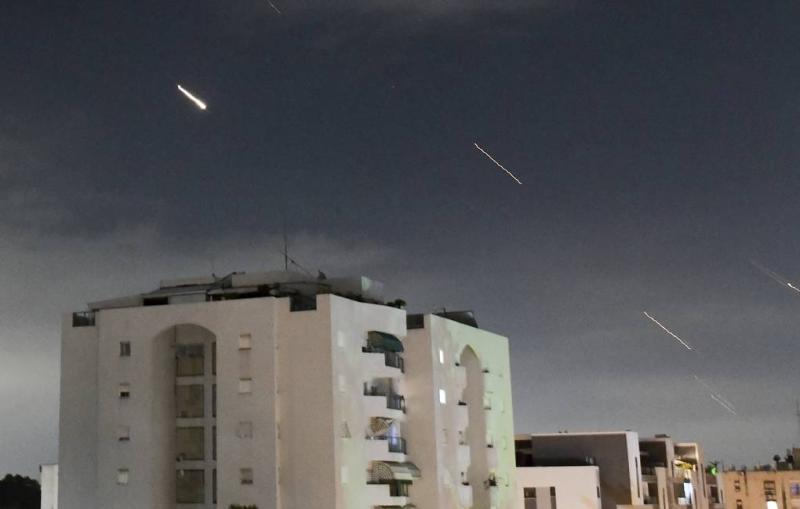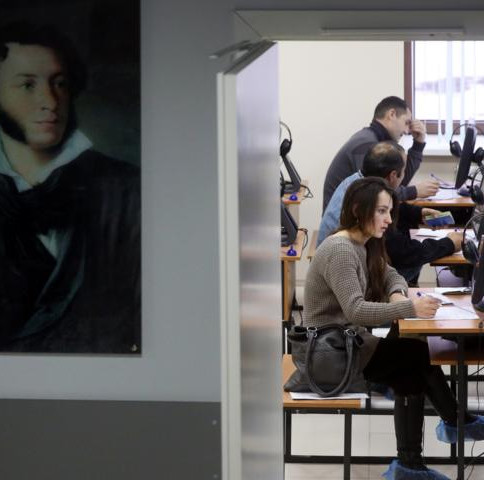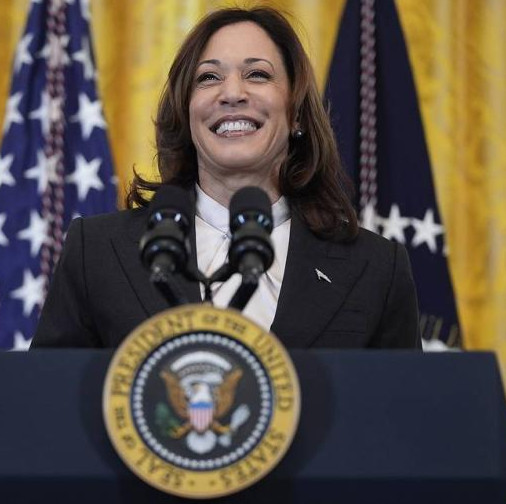
Iran’s aerial offensive on Israel raises stakes in the region; Russia and the West are at odds over AI regulation; and Russia sees a three-fold rise in DDoS attacks in January-March. These stories topped Monday’s newspaper headlines across Russia, according to TASS News Agency.
On Saturday night, Iran carried out a major cross-border attack on Israel. The attack, delivered from Iran, Iraq, Syria, and Yemen, saw Tehran fire 170 drones, as well as over 30 cruise missiles and more than 120 ballistic missiles. Israel Defense Forces (IDF) Spokesman Daniel Hagari said that together with its allies, Tel Aviv was able to neutralize 99% of aerial targets.
More than 70 drones and three ballistic missiles were intercepted by US Navy warships and warplanes over the eastern Mediterranean Sea, the Pentagon said. Also, the US military downed "dozens of Iranian drones" over Iraq and Jordan, two senior Israeli officials told Axios. British and Jordanian fighter jets were involved in repelling the Iranian air attack (no information on how many targets they downed is available).
According to the Israeli military, the Iranian attack caused minor damage, mostly to the Nevatim Airbase. However, 12 people, including a 7-year-old Arab girl, were injured in the attack. Israel has spent decades building a layered air defense system to repel similar attacks, so the fact that so many missiles were intercepted comes as no surprise, a Russian defense official said.
The Iranian attack came two weeks after Israel struck Iran’s consulate building in Damascus, killing two senior generals of the Islamic Revolutionary Guard Corps, Mohammad Reza Zahedi and Mohammad Hadi Haji Rahimi.
Tel Aviv’s April 1 airstrike on Iranian facilities in Syria broke the unwritten rules of its years-long confrontation with Iran, Yuri Lyamin, senior researcher at the Center for Analysis of Strategies and Technologies, told Vedomosti. "Earlier, the [two] parties resorted to sabotage or sponsored various groupings against each other, but they refrained from directly attacking each other or their diplomatic missions, warplanes or ships in third countries," the expert explained.
In retaliating directly, Tehran is showing that it is ready for open confrontation, but it would prefer to return to the status quo which existed before the Israeli strike, Lyamin added. Should Tel Aviv decide to escalate the conflict with Iran, the region may face very negative consequences, as both parties may involve neighbors in a potential military confrontation, the expert said. "Therefore, Washington will likely try and persuade the Israeli leadership to reduce tensions, as the Americans are hardly seeking to get drawn into another military conflict, especially ahead of the [November presidential] election," he concluded.
The United Stated fears radical steps from Israeli Prime Minister Benjamin Netanyahu and is therefore seeking to distance itself from him, as it says [behind closed doors] that it won’t join any Israeli response, said Andrey Zeltyn, senior lecturer at the School of Asian Studies at the Higher School of Economics (HSE University). According to him, it would be hard for Israel to justify to the world any further attacks on Iran. Moreover, the expert continued, any Israeli retaliatory strike would require an air corridor to be opened across Saudi Arabia and Jordan, which is highly unlikely.
Izvestia: Russia-West rivalry extends to artificial intelligence
The race to harness the power of artificial intelligence (AI) is heating up, as tech giants and nations alike vie for dominance in this rapidly evolving field. Apart from purely peaceful purposes, AI is being integrated into weapons systems and defense planning. Earlier this month, CNN reported that Ukraine had used AI-powered unmanned aerial vehicles against Russia. What is even more dangerous is that this technology can be used for nefarious purposes like planning terrorist or cyber attacks.
Also, with some forecasts predicting that AI will contribute $10 trln to $15 trln to the global economy by 2030, today more than ever the technology is in the limelight. Therefore, not surprisingly, both businesses and governments want a piece of the pie.
In March 2023, tech leaders and researchers, including US entrepreneur Elon Musk, called on AI labs to halt developing the latest systems. In Russia, the feeling is that the spread of AI cannot be stopped. Taking this into account, Russian President Vladimir Putin said that humankind should not wait for a threat to emerge, but rather come together and lay down rules for working with AI that would be acceptable for everybody, similar to those regulating the use of nuclear technology, including in the defense field.
In February, he signed a decree to upgrade the National AI Development Strategy through 2030, emphasizing, among other things, the need to deepen international cooperation in the use of the technology.
So far, over 60 countries have developed and approved their own national AI development strategies.
Governments are working together like never before, bilaterally, regionally and globally. "International cooperation covers quite a range of issues, including the provision of international information security, efforts to regulate and coordinate technical standards and working toward formulating common regulatory norms for the global digital sphere, especially AI," Elena Zinovyeva, chief researcher from the Neuromarketing Laboratory at Moscow State Institute of International Relations (MGIMO University), told Izvestia.
However, AI is causing friction between Russia and the West. In particular, the two sides are butting heads on how international information security should be regulated, where AI plays a role. While the United States and its allies insist that voluntary norms of conduct in the digital sphere be adopted, Russia argues that a legally binding document should be coordinated, experts explained to Izvestia.
"We understand that the 'collective West' <…> will be trying to gain the upper hand by stepping on anyone along the way. <…> And we believe that such an approach may complicate AI-related discussions at the United Nations or other venues attended by the Western camp," the Russian Foreign Ministry said.
Nevertheless, Moscow will continue to work to promote its vision. "There is a growing interest in Russian AI developments as increasingly more countries and foreign organizations, institutions and businesses are showing interest. Among other things, the number of foreign signatories to the Russian AI Code of Ethics has been steadily growing," the ministry added.
Izvestia: DDoS attacks on Russia triple
In the first quarter of 2024, experts at the Russian Public Communication Network Monitoring and Management Center repelled 512 DDoS attacks, or almost three times as many as in 2023, when 185 of these attacks were registered, Russia’s digital regulator Roskomnadzor told Izvestia. Oftentimes, government-owned agencies, lenders, transportation and telecom operators, as well as major media outlets and regional news agencies are targeted.
Roskomnadzor said that a national system for countering DDoS attacks has been established at the Center. The system, which has already brought 160 companies on board, provides additional protection to key and vital social networks.
The number of cyberattacks has increased, indeed, and the reason why is clear, as the recent Russian presidential election had foreign hackers very busy, Anton Nemkin, a member of the State Duma committee on Informational Policy, IT and Communication, told Izvestia. "The election campaign resources were also targeted: out of 507 attacks in March, 497 attacks occurred during the election. All of them were successfully repulsed, and no failures or no-access messages were reported," Nemkin said as he lauded the country’s efforts in information security.
According to Grigory Uryev, CEO of Synterra Media, how these kinds of attacks are carried out has changed dramatically. While 2022 saw a trend toward replacing content or information, current attacks are aimed at the networks themselves, he said. "The attacks being reported are aimed at destroying or blocking the infrastructure, trying to do as much damage as possible," the expert explained.
Kommersant: US, UK impose ban on Russian metal
Russian aluminum, copper and nickel have been cut off from Western trading platforms. The London Metal Exchange (LME) and the Chicago Mercantile Exchange (CME) have been banned from accepting newly produced Russian metals or directly importing them. Analysts fear that the latest sanctions will cause logistical problems and, probably, a price spike, as they expect that liquidity in the metals market will finally flow to the Shanghai exchange.
The fresh restrictions may mostly affect trading in non-ferrous metals on Western exchanges, for which Russian supplies have been key. Currently, out of 1 mln metric tons of stocks at the LME, Russian metal accounts for 400,000 metric tons. And aluminum makes up the bulk of all Russian metal stocks, or 311,000 metric tons, while the share of copper and nickel stands at 61,000 metric tons and 25,000 metric tons, respectively.
After the US imposed its sanctions, the LME acknowledged that they may cause uncertainty in the aluminum, copper and nickel markets. According to Maxim Khudalov, chief strategist at the Vector X investment company, the sanctions double down on the restrictions already in place on Russian metal imports in the United States and Britain.
Since mid-2022, when the LME designated trading in Russian copper as undesirable, Russia has mostly redirected its aluminum exports to the Shanghai exchange, as market players feared trading Russian metal over potential sanctions.
According to Khudalov, potential disruptions in logistics may be due to the impossibility of supplying metal to the LME, but those volumes can be accommodated through Asian traders. "A nickel or aluminum price hike may be the silver lining of this bad news. This was perhaps precisely the goal pursued by the Americans - to push aluminum prices up for the sake of the struggling Alcoa," he suspects, as in 2023, the US industrial corporation’s market capitalization tumbled by 47%.
Nezavisimaya Gazeta: Tokayev, Pashinyan meeting to explore relations with Russia
On Monday, Kazakh President Kassym-Jomart Tokayev will make his first visit to Armenia as part of bilateral relations, rather than events hosted by the CIS, the Collective Security Treaty Organization (CSTO) or the Eurasian Economic Union (EAEU). His visit will coincide with the 25th anniversary of the signing of the treaty of friendship and cooperation between the two republics. It also comes one month after Tokayev’s trip to Azerbaijan. In Yerevan, the Kazakh leader will meet with Armenian Prime Minister Nikol Pashinyan and President Vahagn Khachaturyan.
Experts interviewed by Nezavisimaya Gazeta are cautious about the meetings. "For objective reasons, cooperation between Armenia and Kazakhstan has been quite limited, as there are no direct logistical networks between the two countries. In addition, Astana’s ties with Azerbaijan are much further along," argues Stanislav Pritchin, senior researcher at the Center for Post-Soviet Studies at Russian Academy of Sciences’ Institute of World Economy and International Relations (IMEMO RAS). According to him, were the so-called Zangezur corridor to open tomorrow, no breakthrough in bilateral trade would occur. Tokayev may try himself as a peacekeeper in the South Caucasus though, the expert said.
Chingiz Lepsibayev, chairperson of the Eurasian Expert Council Foundation, believes that Tokayev and Pashinyan will primarily talk about the situation inside the CSTO and the EAEU. While the economic ties between the two countries are quite weak, cooperation with Russia, over which the two countries have experienced US and EU pressure, brings them together. "In addition, making a contribution to resolving the Armenia-Azerbaijan conflict would be important for Tokayev," Lepsibayev concluded.
Hayk Khalatyan, who heads the Analytical Center for Strategic Research and Initiatives, agrees that Kazakhstan has long been wearing the image of a peacekeeper. However, it would be harder for the former Soviet republic to act as an effective mediator in the Armenia-Azerbaijan conflict, he maintained.
TASS is not responsible for the material quoted in these press reviews









